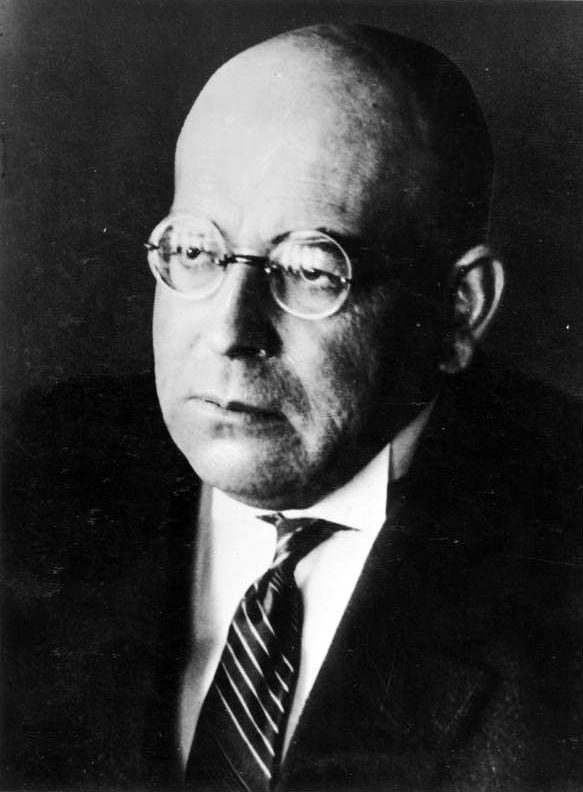"Oswald Spengler: Prophet
of World Chaos" is a collection of lectures and articles by Rudolf
Steiner, the founder of the spiritual system known as Anthroposophy. The object
of his criticism, Spengler, was the author of the two-volume work "The
Decline of the West", a classic of historic pessimism. Steiner's
Anthroposophy, by contrast, is optimistic and includes a belief in a kind of
progressive spiritual evolution that will eventually turn humans into angelic
beings. Yet, Anthroposophy can also be very critical and
"pessimistic" about the present state of modern civilization. Steiner
even expected an Anti-Christ figure to appear, perhaps at some point during the
21st century. Meanwhile, Spengler doesn't strike me as anti-modernist despite
his pessimism, and seems to relish the future coming of a new Catiline or
Caesar. A confrontation between Steiner and Spangler therefore seems to be of
considerable interest.
Unfortunately, Steiner never really delivers. He is too rambling, too "in house" and occasionally quite incomprehensible. I wonder whether even his devote disciples understand every word of this collection! His criticism of "the prophet of world chaos" is, in plain English, chaotic. I did take away a few things from it, but they weren't particularly sensational.
Steiner, naturally, cannot accept Spengler's materialism, which he dubs "materialist mysticism". Spengler eulogizes the men of action as the real movers of world history, in contrast to philosophers and other thinkers, whose puny little thoughts are nothing against the sword. Steiner's counter-move is to point out that virtually everyone in ancient times believed in the existence of gods and a spiritual reality. Where did the men of action get their inspiration from? Steiner believes that it comes from "the mysteries", i.e. the mystery religions. In a sense, the men of the deed are therefore following the instructions of the "thinkers". He points out the strong influence until relatively recent times of secret societies (such as the Masons) in the Western world.
Dr Steiner says that those who have a purely materialist perspective on history and life, will only see decline and degeneration. In that sense, Spengler is "right". Steiner, perhaps mockingly, writes that Spengler has discovered the forces of degeneration working within himself! If materialism had been true, civilization would go under by the year 2200 (Spengler's timeline). However, Steiner believes there is a solution: Anthroposophy, which calls on humans to become free by using their will power. Will, or a kind of will to freedom, will overcome the forces of decline and decadence. Indeed, only such a will can overcome them. Steiner is confident, however, that this will be so. (In other works, he claims to have clairvoyant knowledge of the future of humanity. We have a very rocky road ahead of us, but eventually humans will reach the "Vulcan incarnation" and become like gods.)
Much of Steiner's critique of Spengler is written from a highly theoretical Anthroposophical perspective. It's difficult to understand for the general reader, and I don't fully follow it myself. Thus, Steiner believes that humans in ancient times had direct contact with the divine-spiritual forces, but that this made real freedom impossible. Therefore, humans had to develop an abstract form of "picture-thinking" which, on the one hand, made them more materialist, but on the other hand, opened up possibilities of freedom. For this reason, humans need not fear machines. Rather, they should use the machines in order to develop their spirituality. It's not entirely clear what Steiner means, and the average Anthroposophist today sounds rather anti-technological. (So did Steiner himself when he developed biodynamic agriculture, for instance.) He does charge Spengler with fearing the dominance and "devilish nature" of the machine, saying that this is only natural for a materialist who can see no way out of the mechanized maze. Other sections of the book are beyond me, such as Steiner's talk about "plant-thinking" and what not. He seems extremely upset about Spengler's view of plants as somehow dead and mystifying. Perhaps some seed meditation might help?
When Steiner commented on the first volume of "The Decline of the West", he seems to have had a great respect, even a certain admiration, for Oswald Spengler. Rudolf Steiner seems to be suggesting that occultists can somehow use Spengler's work, even though it's strictly speaking in error. He took a similar approach to Nietzsche and Haeckel, which has often been misunderstood as "support" for their ideas. Most of the admiration was gone by the time Steiner had read the second volume of Spengler's magnum opus. He sounds negative, sarcastic and (but now I'm guessing wildly) jealous. I'm not sure if Spengler ever commented on Steiner's articles, but I do seem to remember that he regarded Theosophy as a degenerate pseudo-religion. Since Steiner's Anthroposophy is freely based on Theosophy, I can imagine what the prophet of world chaos might have thought about the prophet of the Vulcan incarnation...
Probably only worth two stars, but since no other Steinerite polemic against "Untergang des Abendlandes" seem to exist, I suppose you have to read it anyway if you are interested in matters such as these...

No comments:
Post a Comment